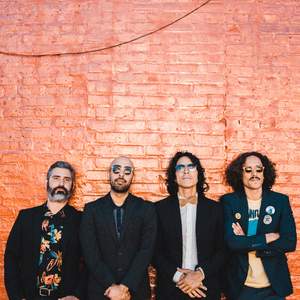Nero Tour 2026
November 25, 2025 -
Now that the tickets for the latest Nero tour are available, you can secure the best spots almost instantly.
Every fan will get a chance to experience the amazing performance of their favorite musician. If you are looking for cheap tickets then you have found yourself in the right place. The quality music has to be experienced through live events only.
There is no doubt that the latest Nero tour is the biggest music even of the year. The evidence for that is very clear. Their shows attract thousands of people even from neighboring regions. It is no wonder that the best venues are always being selected for their concerts. Thousands of people will be gathering around just to witness a star performing on stage.
We make sure to offer the most competitive prices for tickets for different concerts. Getting tickets for the first row is also not a problem. With our website it is easy to follow the Nero schedule and see all the upcoming shows along with important details. The most amazing experience is guaranteed!
You can’t really find anything similar to a live performance anywhere else. A lot of people are eager to see a Nero concert at least once and get the truly amazing experience. This is why fans of quality music prefer going to big concerts and booking the best spots in order not to lose any detail of the show. The Nero tour is something truly special, and if you don’t want to miss it then check our deals as soon as possible.
When your favorite band arrives in your hometown, we will make sure to provide you with the best offers. Here you will find the Nero tickets 2025 and all the details related to their live performances.
Nero Tickets 2026
Nero VIP Packages 2026


About Nero
Nero ( NEER-oh; Nero Claudius Caesar Augustus Germanicus; 15 December 37 – 9 June 68 AD) was the fifth Roman emperor, ruling from 54 to 68. His infamous reign is usually associated with tyranny, extravagance and debauchery. Nero, originally named Lucius Domitius Ahenobarbus, belonged to the Julio-Claudian dynasty, and was adopted as heir by the emperor Claudius, his great-uncle and stepfather. Nero succeeded Claudius while not yet aged 17, and his mother, Agrippina, tried to dominate his early life and decisions, but Nero cast her off and had her killed five years into his reign.
During the early years of his reign, Nero was content to be guided by his mother Agrippina, his tutor Seneca, and his Praetorian prefect Afranius Burrus. As time passed, he began to play a more active and independent role in government and foreign policy. During his reign, the redoubtable general Corbulo conducted a successful war and negotiated peace with the Parthian Empire. His general Suetonius Paulinus crushed a major revolt in Britain, led by the Iceni Queen Boudica. The Bosporan Kingdom was briefly annexed to the empire, and the First Jewish–Roman War began. Nero focused much of his attention on diplomacy and trade, as well as the cultural life of the empire, ordering theatres built and promoting athletic games. He made public appearances as an actor, poet, musician, and charioteer. In the eyes of traditionalists, this undermined the dignity and authority of his person, status, and office. His extravagant, empire-wide program of public and private works was funded by a rise in taxes that was much resented by the upper classes. In contrast, his populist style of rule remained well-admired among the lower classes of Rome and the provinces until his death and beyond. Various plots against Nero's life developed, and Nero had many of those involved put to death.
In AD 68 Vindex, governor of the Gaulish territory Gallia Lugdunensis, rebelled, with support from Galba, governor of Hispania Tarraconensis. Vindex's revolt failed in its immediate aim, though Nero fled Rome when its discontented civil and military authorities chose Galba as emperor. On 9 June in AD 68, he committed suicide, becoming the first Roman Emperor to do so, after learning that he had been tried in absentia and condemned to death as a public enemy. His death ended the Julio-Claudian dynasty, sparking a brief period of civil wars known as the Year of the Four Emperors.
Most Roman sources, including Suetonius and Cassius Dio, offer overwhelmingly negative assessments of his personality and reign; likewise, Tacitus claims that the Roman people thought him compulsive and corrupt. Suetonius tells that many Romans believed that the Great Fire of Rome was instigated by Nero to clear the way for his planned palatial complex, the Domus Aurea. According to Tacitus he was said to have seized Christians as scapegoats for the fire and burned them alive, seemingly motivated not by public justice but by personal cruelty. Some modern historians question the reliability of the ancient sources on Nero's tyrannical acts, however. There is evidence of his popularity among the Roman commoners, especially in the eastern provinces of the Empire, where a popular legend arose that Nero had not died and would return. At least three leaders of short-lived, failed rebellions presented themselves as "Nero reborn" to enlist popular support.













